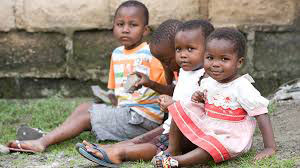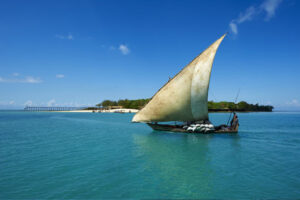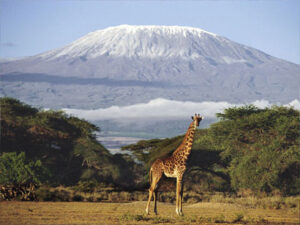The Tanzanian government approves only a small number of adoptive families for international adoption. This is a niche group possessing a specific background illustrating close and continuing ties with the country and culture, most often being individuals that originate themselves from Tanzania. A Family in Bloom Adoption became involved with adoptions from this East African nation to assist appropriate family situations of this type.
Who Can Adopt
 The main target group that our agency believes can be successfully represented for international adoptions from Tanzania consist of two groups:
The main target group that our agency believes can be successfully represented for international adoptions from Tanzania consist of two groups:
- Dual citizen Tanzanian-Americans involved with kinship adoption cases, that will meet the US Immigration definition of orphan status.
- Americans living and working for extended periods of time overseas in Tanzania that have been approved for designated child adoptions by the Tanzanian Adoption Authority. Such non-relative adoption cases could potentially meet the lengthy residency requirement of three years for foreign/non-Tanzanian adoptive parents.
Our agency is not working with any particular orphanage in Tanzania for matching and placement purposes.
A Family in Bloom Adoption’s foreign supervisor provider attorney will be involved with the adoption process abroad. This includes a review of any pre-existing paperwork on a designated adoption case. The foreign attorney presents the adoption case to the District’s Social Welfare Office and the Tanzanian High Court.
 All adoptions are finalized abroad for incoming cases to the US. The US Embassy in Dar es Salaam has the final adjudication and issuance of adopted child visas.
All adoptions are finalized abroad for incoming cases to the US. The US Embassy in Dar es Salaam has the final adjudication and issuance of adopted child visas.
The next segment, below, follows verbatim the regulations posted on the US State Department’s Intercountry webpage about the international requirements for adoption from Tanzania:
In addition to being found suitable and eligible to adopt by USCIS, prospective adoptive parents seeking to adopt a child from Tanzania must meet the following requirements.
- Minimum Residency: Prospective adoptive parent(s) must be Tanzanian residents for at least three consecutive years to adopt a child from Tanzania unless they are Tanzanian citizens. The Tanzanian Office of Social Welfare considers a person to be resident if that person holds a Resident Permit (Class A, B or C), a Dependent’s Pass, or an Exemption Permit, and lives in Tanzania. This residency requirement may be waived in cases where the applicant is a Tanzanian citizen or the High Court of Tanzania determines an adoption by non-Tanzanians to be “in the best interests of the child” (Tanzania Law of the Child, Article 74, Section 2).
- Age of Adopting Parents: A prospective adoptive parent (or one of the prospective adoptive parents in the case of a joint application) must be at least 25 years old and at least 21 years older than the child to be adopted. If the prospective adoptive parent is a relative of the child, he or she must be at least 25 years old, but there is no requirement regarding the minimum age difference between the prospective adoptive parent and the prospective adoptee.
- Marriage: Married heterosexual couples may adopt from Tanzania. If one spouse applies for an adoption order, the other spouse must consent. Single women who are Tanzanian citizens may adopt. A single man with Tanzanian citizenship may only adopt a child if the child is his biological son (or biological daughter if the court is satisfied that special circumstances warrant the order.
- Minimum Income: Prospective adoptive parents are required to have sufficient funds to be able to take care of their adoptive child.
— Nelson Mandela
About Tanzania
 In Tanzania are found the earliest remains of our ancient hominid ancestors. During the Stone and Bronze age period, waves of human migrations crisscrossed the region. Starting during the Medieval days, the coastal area along the Indian Ocean saw the inception of Islam. Great wealth predicated from extensive maritime commerce, centering around the kingdom of Zanzibar. The colonial period began under the Germans in the late 19th century; they were in turn supplanted by the British Empire in 1919 after Germany’s defeat in the First World War. Great Britain would influence the country’s development and culture until Tanzanian independence in 1961 under populist leader Julius Nyerere. He would remain as one of the continent’s longest reigning Prime Ministers, with his tenure lasting until 1985.
In Tanzania are found the earliest remains of our ancient hominid ancestors. During the Stone and Bronze age period, waves of human migrations crisscrossed the region. Starting during the Medieval days, the coastal area along the Indian Ocean saw the inception of Islam. Great wealth predicated from extensive maritime commerce, centering around the kingdom of Zanzibar. The colonial period began under the Germans in the late 19th century; they were in turn supplanted by the British Empire in 1919 after Germany’s defeat in the First World War. Great Britain would influence the country’s development and culture until Tanzanian independence in 1961 under populist leader Julius Nyerere. He would remain as one of the continent’s longest reigning Prime Ministers, with his tenure lasting until 1985.
A highly biodiverse landscape can be explored in the varied terrain, from luxuriant forest cover to mountainous regions and littoral shoreline. Large nature reserves, many famous the world over, are associated with specific wildlife species, as Tarangire National Park is for the majestic elephant families, alkaline Lake Manyara for its paradisiacal salmon hued flamingos, and Ngorongoro Crater for its densely populated lions. These and other parks entice a steady stream of tourists to the country, eager to partake in Tanzania’s richly saturated and colorful wildlife experience.
Please contact us to learn more about our international adoption services.

